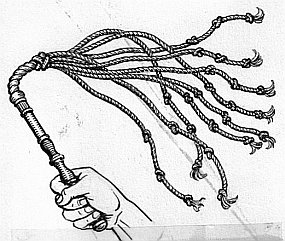Listening to a a recent Ravi Zacharias podcast, I was overcome by a need to reiterate what the apologist shared and both simplify and unpack it further. Thus, this post.
Naaman, commander of the army of the king of Syria, was a great man with his master and in high favor, because by him the LORD had given victory to Syria. He was a mighty man of valor, but he was a leper.
Now the Syrians on one of their raids had carried off a little girl from the land of Israel, and she worked in the service of Naaman’s wife. She said to her mistress, “Would that my lord were with the prophet who is in Samaria! He would cure him of his leprosy.”
So Naaman went in and told his lord, “Thus and so spoke the girl from the land of Israel.” And the king of Syria said, “Go now, and I will send a letter to the king of Israel.” So he went, taking with him ten talents of silver, six thousand shekels of gold, and ten changes of clothing. And he brought the letter to the king of Israel, which read, “When this letter reaches you, know that I have sent to you Naaman my servant, that you may cure him of his leprosy.” And when the king of Israel read the letter, he tore his clothes and said, “Am I God, to kill and to make alive, that this man sends word to me to cure a man of his leprosy? Only consider, and see how he is seeking a quarrel with me.”
But when Elisha the man of God heard that the king of Israel had torn his clothes, he sent to the king, saying, “Why have you torn your clothes? Let him come now to me, that he may know that there is a prophet in Israel.” So Naaman came with his horses and chariots and stood at the door of Elisha’s house. And Elisha sent a messenger to him, saying, “Go and wash in the Jordan seven times, and your flesh shall be restored, and you shall be clean.”
But Naaman was angry and went away, saying, “Behold, I thought that he would surely come out to me and stand and call upon the name of the LORD his God, and wave his hand over the place and cure the leper. Are not Abana and Pharpar, the rivers of Damascus, better than all the waters of Israel? Could I not wash in them and be clean?” So he turned and went away in a rage. But his servants came near and said to him, “My father, it is a great word the prophet has spoken to you; will you not do it? Has he actually said to you, ‘Wash, and be clean’?”
So he went down and dipped himself seven times in the Jordan, according to the word of the man of God, and his flesh was restored like the flesh of a little child, and he was clean.
Then he returned to the man of God, he and all his company, and he came and stood before him. And he said, “Behold, I know that there is no God in all the earth but in Israel; so accept now a present from your servant.” But he said, “As the LORD lives, before whom I stand, I will receive none.” And he urged him to take it, but he refused.
—2 Kings 5:1-16 ESV
Naaman was a great and proud man, the General Eisenhower of his time and place, but leprosy had infected him. In time, the disease would rob him of his position and place in society, as lepers were forcibly outcast by the virulence of the disease and its horrible effects. In this era, no cure existed. A diagnosis of leprosy destroyed lives. In the Bible, leprosy exemplified the physical manifestation of the sin that bedevils all our lives.
Into Naaman’s household came the lowest of the low, a little girl of foreign birth now made a slave through enemy conquest. In his desperation, Naaman listened to that pittance of a person tell of a prophet who could heal him. Interestingly, Elisha had not performed a healing miracle yet, but this girl’s faith in the God behind the prophet prevailed.
How humbling to listen to a lowly enemy then go to another enemy for help. And yet Naaman went.
 But instead of facing this opposing prophet, proud Naaman, already humbled in part by leprosy, was further humbled when the prophet sent a third-rate messenger to tell him to go wash in one of Israel’s rivers.
But instead of facing this opposing prophet, proud Naaman, already humbled in part by leprosy, was further humbled when the prophet sent a third-rate messenger to tell him to go wash in one of Israel’s rivers.
Naaman, enraged by the slight, cried out how the rivers back home were even better than Israel’s meager Jordan . His servant pleaded, and eventually Naaman relented. And he was healed.
LESSONS
If you are not a believer in Jesus:
Every person believes he or she knows what is right, yet each also knows that deep down inside, something is wrong. That wrong is sin. People try all sorts of ways to deal with that sin and its consequences in life, yet everyone fails.
Jesus said this:
“I am the way, and the truth, and the life. No one comes to the Father except through me.”
—John 14:6 ESV
Naaman lamented, ” Are not Abana and Pharpar, the rivers of Damascus, better than all the waters of Israel? Could I not wash in them and be clean?”
No. God made a way to be clean. One way. In the only waters that lived and healed.
To Naaman, it all sounded like foolishness.
People can try all sorts of ways to be clean: Buddha, Mohammed, self-fulfillment, self-mortification, this or that. But God made a way. One, exclusive way.
That way is Jesus. The living, healing water you need is found only in Him and nowhere else.
You can do what is asked by God, or you can succumb to the leprosy. But don’t say that God has not made a way. He has: Jesus.
This Jesus is the stone that was rejected by you, the builders, which has become the cornerstone. And there is salvation in no one else, for there is no other name under heaven given among men by which we must be saved.”
—Acts 4:11-12 ESV
Lastly, God may be asking you to give up your pride and listen to one of those weird Christians you hate. The message of healing and life will likely come from someone you ordinarily disregard. That’s often how God works. Don’t let a superior attitude prevent you from humbling yourself long enough to heed what may very well save you.
If you are a Christian believer already:
Israel was filled with lepers, but they were not healed. Instead, the God of Israel healed a Syrian enemy of Israel.
God seeks out those who will believe Him, even if He must go outside the walls of the fortress to find them. Do not assume because you are inside that you will not be considered an outsider–and the outsider an insider.
Naaman listened to a nobody, the least of these. And he did as he was told, even if it violated everything rational and right. He alone was healed. He alone received absolution.
God will work in the lives of those who take Him at His word, and He is no respecter of persons. He used the lowest of the low to speak to the greatest. Take care in who you listen to. Take care in how you respond.
Even Christians will defend an inadequate river if they proudly operate from their own wisdom and not God’s.
Christians should also finish the story in 2 Kings 5, because an additional warning to us exists in the failure of one who had seen many miracles and yet did not have saving faith, Gehazi, Elisha’s own servant. The world is filled with Gehazis. Don’t assume you aren’t one of his kind or that you are better than he is.
God made a Way in Jesus. One Way alone. Come, humble yourself and be made clean.

 Person A : “Yes, you need to love people in Jesus’ name, but you can’t excuse their sin. Love them, but call them to repentance too.”
Person A : “Yes, you need to love people in Jesus’ name, but you can’t excuse their sin. Love them, but call them to repentance too.” I hear a lot of laments online about why America is in trouble as a nation. There’s a reason for that trouble, a remarkably simple one. It’s found in this verse of the Bible:
I hear a lot of laments online about why America is in trouble as a nation. There’s a reason for that trouble, a remarkably simple one. It’s found in this verse of the Bible: